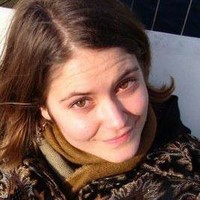This claim circulates in the internet and in many mainstream media as well: Scientists have allegedly predicted the coldest winter in 1,000 years for Europe. What is behind it? Nothing – no scientist has predicted anything like it. A Polish tabloid made up the story. An interesting lesson about today´s media.
By Stefan Rahmstorf and Olivia Serdeczny
We had read about it a few times and last Wednesday even were asked by German TV about the allegedly coldest winter in 1000 years, predicted by (depending on the source) Polish or Russian climatologists or meteorologists. Reason enough for us to take a closer look at the story behind the story.
It did not take much googling to find the source: various articles on the internet name the Polish scientist Michał Kowalewski, sometimes in the Russian spelling version of Mikhail Kovalevski. A few clicks later we arrive at the original article with Kowalewski´s quotes. Except that Kowalewski does not predict a record winter there – the “millennium winter” merely appears in the headline. A closer reading of the article quickly reveals: the quotes were answers to questions concerning the role of the Gulf Stream for Europe´s climate. The frosty temperatures are hypothetical effects of a breakdown of the Gulf Stream – which, as Kowalewski points out, can be pretty much ruled out.
We asked Kowalewski for his comments on the media coverage and promptly got his answer in an email from Warsaw:
The reports in some media are absolutely unbelievable. A journalist who interviewed me for radio had asked me about the theoretical climatic effects of a breakdown of the Gulf Stream. I answered that this purely hypothetic scenario would lead to much colder winters in Poland. A few days later I found on the internet the article of a journalist who mixed his own words with some of my quotes without their context so well that a completely new meaning came out. An absolutely absurd thesis. My quotes as such are correct, so I was not able to demand a correction.

Winter has Europe in its grip: the Süring-building of the Potsdam Institute.
It’s an interesting and insightful tale how this story spread. Here is a brief chronology:
September, 10. Michał Kowalewski is interviewed by the Polish radio station tok.fm. The same day the website of a Polish tabloid, Gazeta.pl, publishes an article with the headline of a „millennium record winter“ („once-in-a-millennium winter“). A certain Gianluigi Zangari is being quoted at the outset. He has apparently claimed to have found a slow-down of the Gulf Stream in satellite data, which he attributes to the BP oil spill (we did not follow this bizarre claim to the source). Subsequently Kowalewski´s radio interview is brought in – in order to explain the Gulf Stream and its effects on climate in general.
September, 12. „Fakt“, a Polish tabloid, writes „Millennium Winter is Coming!“ Again the BP oil spill is blamed. This time, however, without any reference to Zangari, so readers could easily be left with the impression that this is Kowalewski´s idea.
September, 22. The Voice of Russia reports that the Polish scientist „Mikhail Kovalevski“ is worried about the Gulf Stream breaking down, which Russian scientists counter as being an exaggeration.
Oktober, 4. The Russian RT News Service predicts „The coldest winter in 1.000 years“. Which is explained by the Gulf Stream having slowed down by half. RT refers to Polish scientists: “Polish scientists say that it means the stream will not be able to compensate for the cold from the Arctic winds. According to them, when the stream is completely stopped, a new Ice Age will begin in Europe”. This is where the Russian Vadim Zavotschenkow enters the scene. However, he mentions merely a cold winter: “Although the forecast for the next month is only 70 percent accurate, I find the cold winter scenario quite likely”.
Oktober, 4. The “climate sceptics” website wattsupwiththat, noted for their false reports, takes up the RT piece, presents it together with The Voice of Russia and mentions „Mikhail Kovalevski“. Watts seems to be the bridge for the story´s crossing into the western media. Is it just coincidence that the „record cold winter“ story nicely suits the political agenda of the climate sceptics?
From then on, the story is repeated on many other European media, including serious newspapers and television.
It is staggering how one journalist just copied another, sometimes even embellishing the story, without ever bothering to check the source or ask Kowalewski himself. It took us less than ten minutes of googling to get serious doubts about whether this story was real. The familiar pattern of „Chinese whispers“ emerges here once again – the same that widely spread the false whatevergate-stories.
But the often self-righteous free western press can actually learn a lesson from its Chinese counterpart in this case. The Chinese news agency Xinhua checked the story and issued the following on October, 20.:
A forecast attributed to Polish scientists of the coldest European winter in 1,000 years has drawn plenty of media attention recently but investigations by Xinhua reporters have cast doubts on its veracity.
p.s. There are, by the way, scientifically well-founded attempts to explain the currently cold weather in Europe. The basic check for seriousness: a peer-reviewed journal source is provided, and according to Google Scholar the author has a decent publication record. A millennium-record-winter, however, is not being predicted there.
p.p.s. Should your newspaper have also reported this turkey, feel free to write a polite letter to the to editors asking for a correction. It is only if readers demand published information to be verified (or if needed corrected) that something will change to the better.
This article is adapted from the German original at KlimaLounge.

Olivia Serdeczny is a scientist with the Potsdam Institute for Climate Impact Research in Germany.
Wili #94,
You may want to read this if you’ve not seen it:
NOAA Arctic Report Card 2010.
http://www.arctic.noaa.gov/reportcard/atmosphere.html
If it looks daunting just read the summary and the last paragraph.
HTH
#99–
Just eyeballing it, but are we sure this “switch” is even significant, let alone robust?
Well, it’s rather strange when journalist in order to reach a larger audience deliberately changed the original interview. Everyone is more perceived and sensitive about the weather forecast for past few years. We shouldn’t make jokes out of it. Basically, it was totally irresponsible what journalist had done with that interview…
The hydro electricity situation in Norway is really in deep trouble – last winter Norways precipitation was 52% of normal – this november the precipitation is at record low. This is in good agreement with statements made by Francis et al (2009) – full reference at Arctic Report Card. Funny, but norwegian scientists keep claiming Norway will have more precipitation, when other science say precipitation in Norway may decline in winter due to loss of sea ice in Arctic.
The latest research on these strange arctic atmospheric anomalies really should get more coverage – it really makes a lot of sense, also related to strange precipitation events in southern Europe in the last days, and last winter I may add.
Will RealClimate cover this in more depth?
Pbo:
You are basing your concern on one or two years of data? That’s a bit premature, don’t you think?
This, of course, presupposes that you are actually right, which I doubt. A change in winter precipitation is unlikely to have such a huge impact on hydro, particularly if most of the precipitation comes pre-frozen.
You carefully avoid mentioning annual precipitation.
Didactylos:
The Francis paper was out in april 2009, and it states:
– “Scandinavia, for example, depends on hydropower for much of its electricity generation, and its
winter precipitation has declined following recent summers with reduced ice.”
Seems releated to me so far, even if this is a short period. Anyway, the ice loss in Arctic, and winter anomalies on NH really should get more attention.
#102 Kevin McKInney,
That difference between Summer & Winter anomalies is interesting. As for signifinance: Prior to 1979 Summer above Winter (120 years) – after 1979 Winter above Summer. The odds of such a pattern occuring by chance are probably small.
#104 Pbo,
It’s wise to be patient. If there is a climatic shift going on due to the Arctic it will come out in the data in due course, and more years mean more data.
For today’s chuckle, see how Steve Goddard gets this post comically wrong:
“Real Climate Explains That It Isn’t Cold In Europe”
When confronted with the fact that this is just a bald-faced lie, he explains how it’s merely sarcasm.
NASA: November was hottest ever worldwide! Both on land (http://bit.ly/GISland, +0.96C) and on land+ocean (http://bit.ly/GISlandoc, +0.74C)
Above 60 degrees North, average temperature in November was more than 3 degrees C above normal, huge swaths above 4C: http://bit.ly/MapNov
#107–potentially interesting, sure. But I’m not convinced it’s significant–“the odds are probably small” doesn’t really cut it for me. And I don’t see the pattern as quite that clear-cut. What I notice the most–just eyeballing–is how much more variable the winter anomaly is.
#110 Kevin McKinney,
Actually having slept on it, we’re even further apart than when I posted last on that graph (as at post 99). :)
Looking at the graph without knowing anything else about it, I’d say that the 5 year average plot tells me that something changed in the late 1970s causing the switch from Winter below to Winter above. Agreed the annual variations are large, but the averaging lets us focus on the multi-year behaviour – the signal amongst the annual noise.
Naive (?) question.
Current cold weather in Europe: Are the explanations provided by Vladimir Petoukhov [lead article’s link to ‘scientifically well founded attempts’]
and the New Zealand meteorologists mentioned in #52 (high pressure and extreme warming in Arctic) two versions of the same mechanism or independent possibilities?
#112 Geoff Wexler,
From my reading probably the same.
In essence it seems that as the Arctic ice reduces we can expect weather impacts, and the cold weather we’ve been having may be the first of these impacts. Basically lower ice levels at the annual minimum imply:
1) Increased latent heat flux into the atmosphere from open water.
2) Increased latent heat of fusion releases from more forming ice releasing heat into the atmosphere.
The bottom line being changes to Arctic atmospheric circulation and subsequent impacts on Northern Hemisphere circulation. If you’ve not read it I recommend the NOAA Arctic Report Card 2010: http://www.arctic.noaa.gov/reportcard/atmosphere.html
No consensus on this headline!!http://www.dailystar.co.uk/news/view/169577/Winter-may-be-coldest-in-1000-years/
Ed